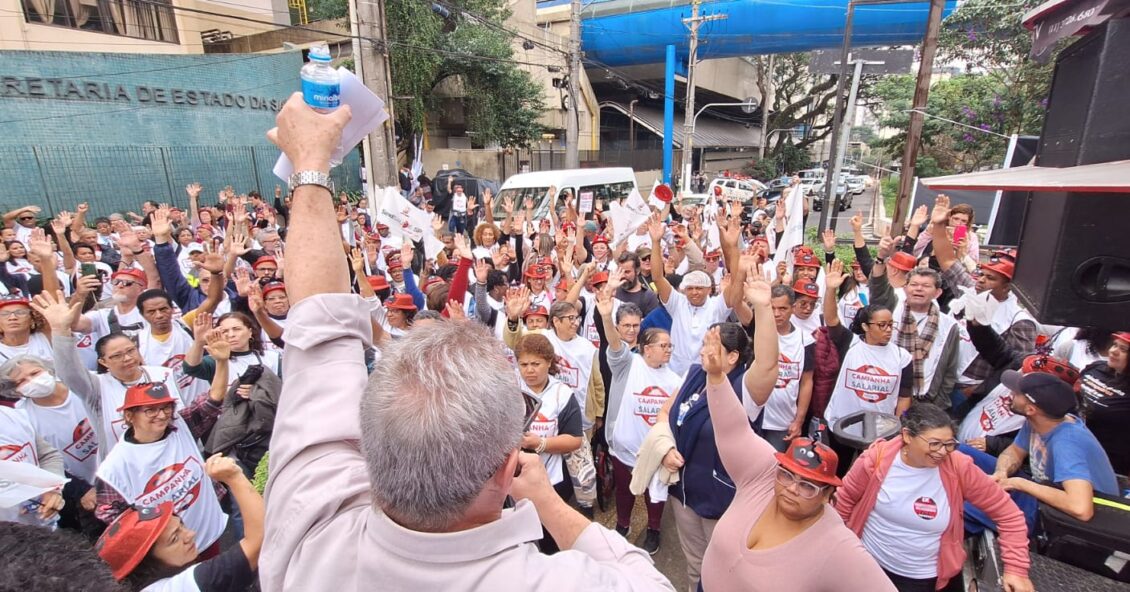Ignoring climate change not an option – strategies for trade union action
31.08.22
As the catastrophic impacts of climate change are being felt across the world, the number of extreme weather events will undoubtedly rise, playing havoc on working conditions, health, crops and trade in ever increasing magnitudes, said Professor Julia Steinberger, an expert on the societal challenges of climate change in a presentation to UNI Global Union on 22 August.
Steinberger, who is one of the lead authors of the Sixth Intergovernmental Panel on Climate Change (IPCC), visited UNI to give staff a greater understanding of the climate crisis and highlight ways trade unions can play their part in averting disaster.
While the Paris Climate Accords committed nations to lower carbon emissions to limit temperature rises by 1.5 or 2 degrees Celsius, there is pretty much no government in the world that is sticking to those commitments, said Steinberger, adding that currently we are on a trajectory for a rise of 3.2 degrees.
Furthermore, the climate impact on biodiversity will be devastating. We are already in the midst of a sixth mass extinction, said Steinberger. However, with a rise of 3.2 degrees, we risk losing to extinction a quarter of all vertebrates (26 per cent), 44 per cent of plants and half (49 per cent) of all insects by 2100. Without insects, humans cannot live. “It’s difficult to imagine how eight to ten billion people can survive that kind of extinction event,” said Steinberger.

Professor Julia Steinberger @UNI Global Union
There is a direct link between emissions and inequality, continued Steinberger. The top one per cent of earners create 15 per cent of global emissions, the top ten per cent create 48 per cent of emissions and the bottom 50 per cent of earners – create just seven per cent of emissions. However, those in poorer countries are likely to suffer more from climate events, while poorer households find it harder to make energy saving measures.
Trade unions have an important role to play in pushing governments for action with policies like a new green deal, said Steinberger. Public services, income equality, democracy and equitable electricity access are crucial in enabling a transformation to low-carbon, low-energy prosperity.
Service sectors can also be a powerful voice in demanding zero emission transformations through a reduction in energy consumption and a decarbonised supply.
While the fossil fuel industry invariably puts the focus on jobs lost in trying to lower emissions, there are a huge number of jobs to be gained through renewable energies, said Steinberger. Trade unions can put together strategies around sufficiency, efficiency, infrastructure, renewables – and investment and jobs are needed for each.
Furthermore, trade unions promote worker-inclusive democracy, resist privatization and lead to a more equitable distribution of wealth, all of which reduces emissions.
Trade unions can also make an impact by pressuring their pension funds to divest from fossil fuel industries and calling on banks to invest sustainably and redirect finance to tackle climate change.”
UNI General Secretary, Christy Hoffman, said:
“We are honoured to have one of the world’s leading climate experts explain the stark reality of global warming. We cannot bury our heads in the sand – ignoring climate change is not an option if we are to secure a future for humanity. We see all around us how droughts, floods, hurricanes and other extreme weather events are increasing, affecting workers, working conditions and compounding inequality. Climate change is a union issue, and we must play our part in leading efforts to tackle it.”


